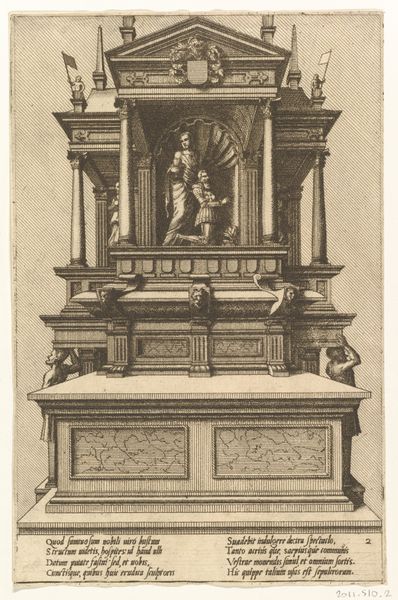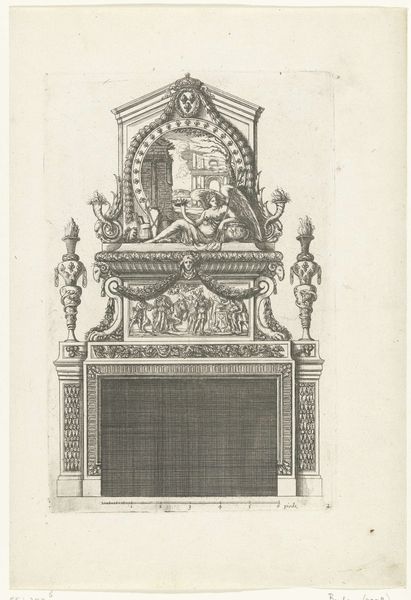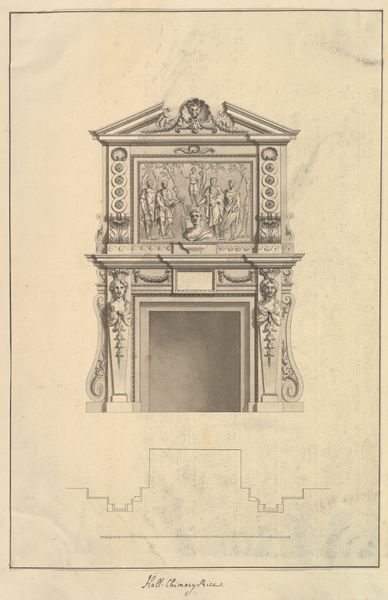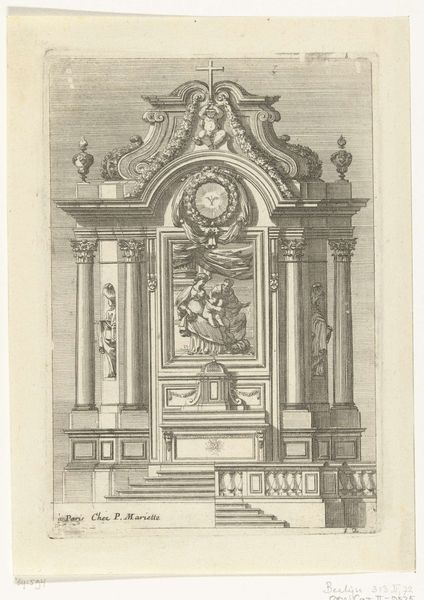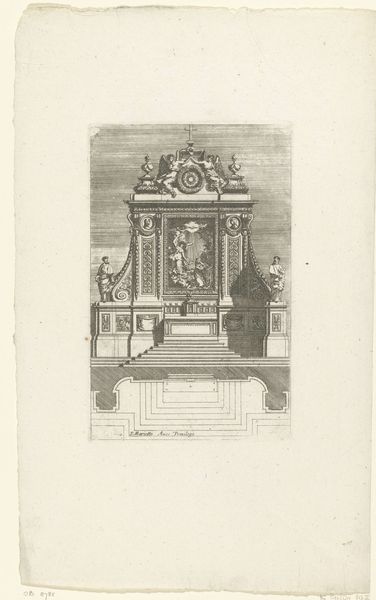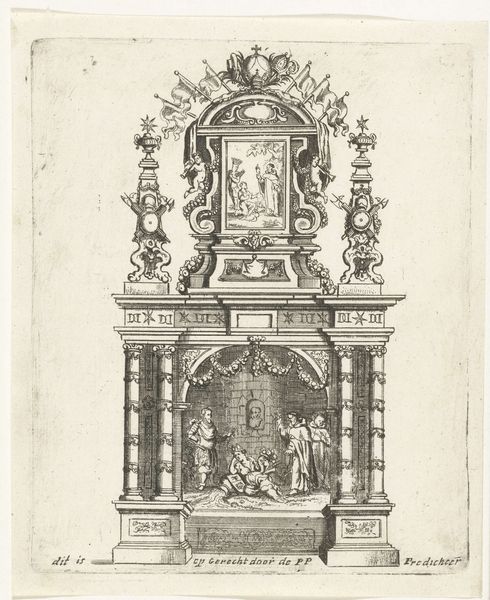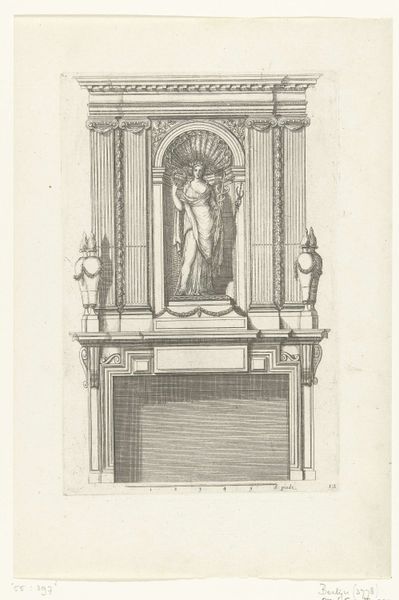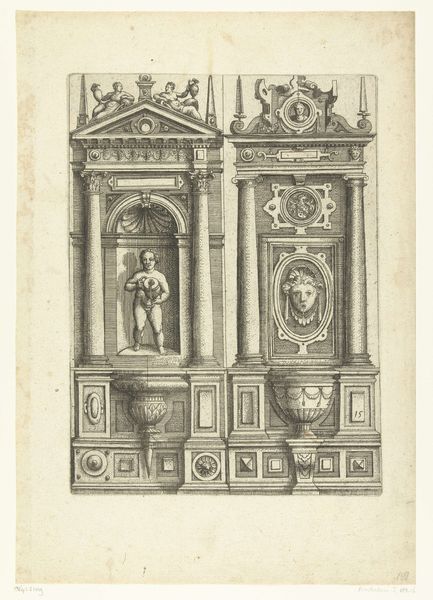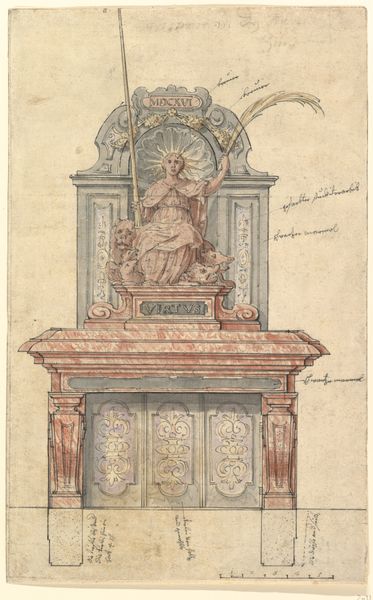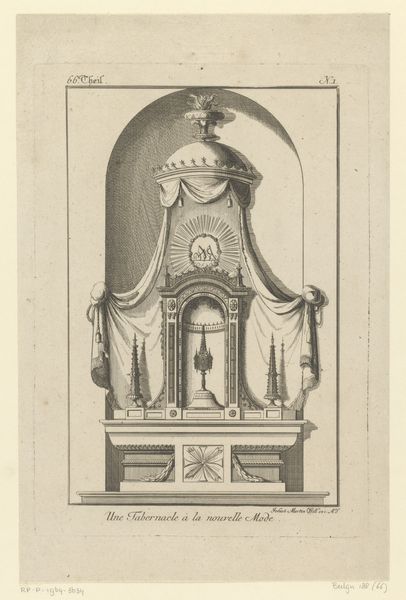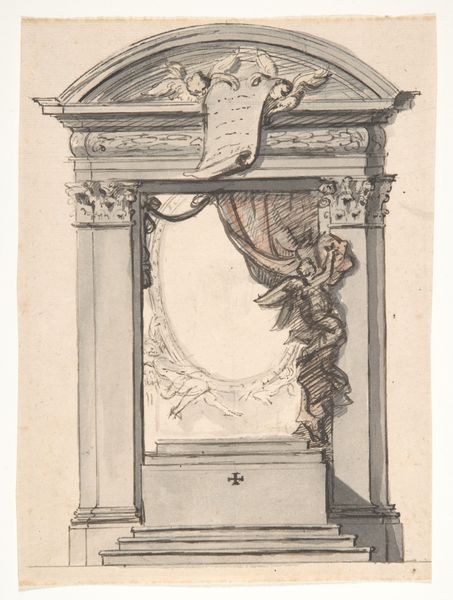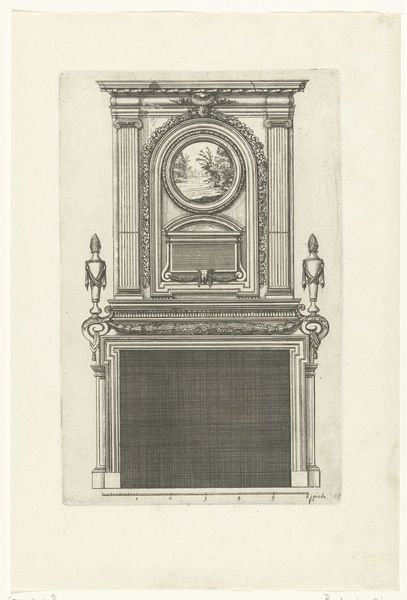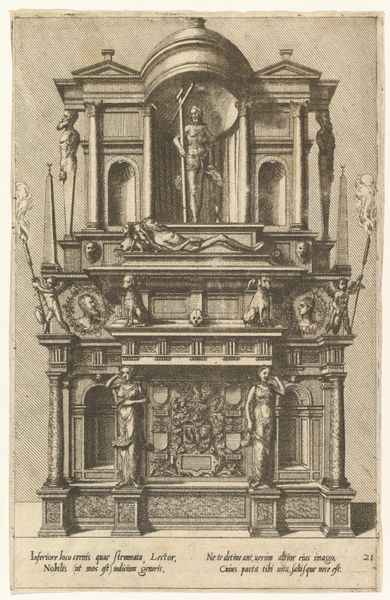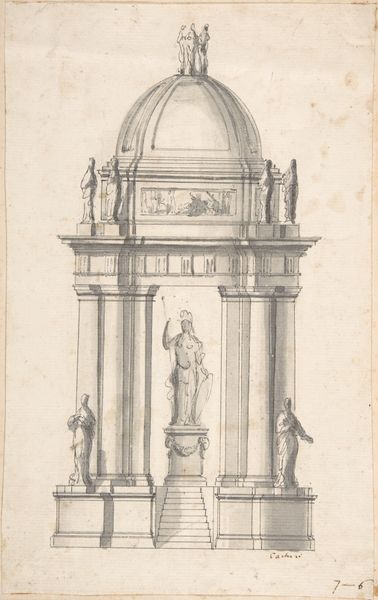
drawing, metal, paper, pencil
#
pencil drawn
#
drawing
#
baroque
#
metal
#
landscape
#
figuration
#
paper
#
form
#
pencil
#
history-painting
Dimensions: height 266 mm, width 194 mm
Copyright: Rijks Museum: Open Domain
Editor: Here we have Teunis Jansz Croon’s "Construction Drawing of a Tomb Monument," created in 1660 with pencil, metalpoint and drawn on paper. The drawing looks very precise and grand, though it feels a little stiff. What kind of symbolism can you read into this design? Curator: The most prominent symbolic aspect is its deliberate engagement with historical precedents. Notice the use of classical architectural elements, such as the columns and the pediment. They signal a connection to the Roman ideals of civic virtue and eternal memory. How does the figure within the monument relate to that language? Editor: Well, the kneeling figure seems to be pledging allegiance to a royal figure. Perhaps this is meant to emphasize the virtues of the person interred within? Curator: Precisely. It is about emphasizing legitimacy and power through imagery. And the monument itself acts as a symbolic bridge, connecting the deceased to timeless virtues and a divinely sanctioned order. Even the choice of metalpoint, a medium demanding precision, speaks to the desire for permanence. What emotional effect does this calculated display produce in you? Editor: It certainly conveys power and permanence, yet the precision also gives a sense of coldness… like history carefully staged. Curator: Indeed, such tension is common. Baroque art, especially funerary art, is full of those kind of dialogues. Editor: So, while seemingly straightforward, this drawing actually holds many layers of meaning, intertwining personal virtue with political legitimacy. Curator: Exactly. Recognizing these symbolic languages helps us to understand how images shaped the cultural and political landscape.
Comments
No comments
Be the first to comment and join the conversation on the ultimate creative platform.
